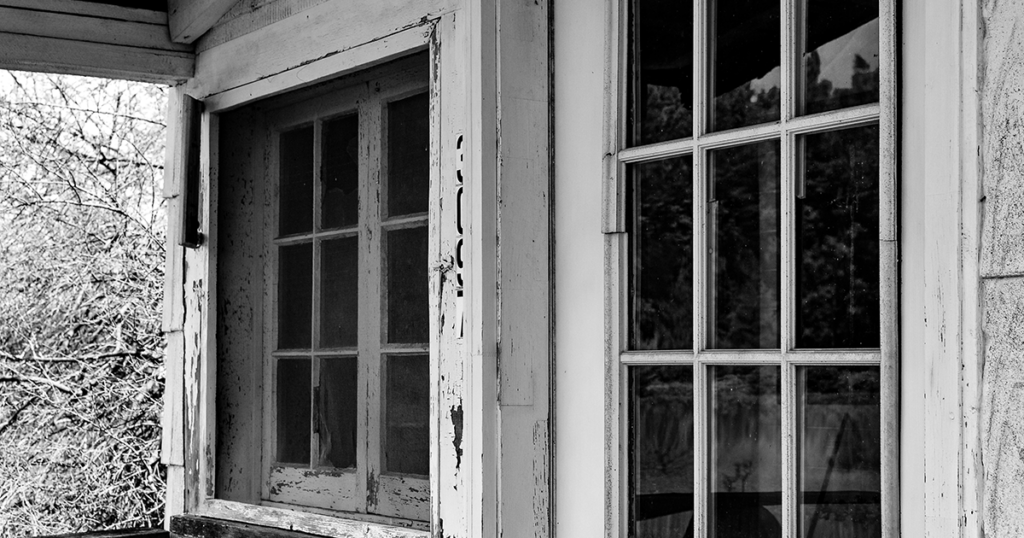
John Prine wrote his song “Hello in There” at 22, when he was too young to have experienced the isolating effects of old age that he depicts with such sympathy.
You know that old trees just grow stronger,
And old rivers grow wilder every day.
Old people just grow lonesome
Waiting for someone to say, “Hello in there, hello.”
Children often wriggle like puppies, bursting out of their skins. As teens, they retreat into the edifices they build around themselves, the blinds come down, and it becomes harder to peak inside. The surface of those structures often has a high shine. No leaks or holes. Nothing gets in or out. But time wears you down. You rattle around within the confines of your own chosen habits. You are your own prison. As Roger Angell says in “This Old Man,” you become invisible though you sit in plain sight. Time strips much away but manages to leave remnants from your former life that knock about sadly. You are not a sponge soaking up everything and getting fuller and fuller but instead a hollow shell with bits of the past rubbing a raw spot. You further wither. Few people see you, much less show any interest. What to do?
A neighbor on my street, who, at 92, lives alone in the same house where she raised her children, is a fine example of keeping alert and interested despite old age. Her house faces south, as does mine, but being across the lane, her house gives onto a patch of meadow, not onto the comings and goings on the asphalt. Through her kitchen window or from her front patio, she sees flowers in the pots just outside her door and grass and trees in the land beyond the low stone wall, but no human activity. So what does she do? Gets her two canes and hobbles around the corner of her house, leaving her sanctuary to sit on a peeling plank fixed to the side of the building, under a bit of overhang. From there, propped against the wall, she sees every person who enters or leaves the dead-end lane, whether coming from the far end on foot or by car, or whether climbing the stairs behind the sports center to the lane that way. And because she’s there, you say hello. And she answers full of energy, “Hello, hello!”
One drizzly morning in early spring, I drove past the woman’s house on my way out of the lane. Nobody was about at that hour, nine a.m. on a Saturday. Strangely, smoke was seeping from a window in the back of her house. The friend I was with and I looked at each other. “What’s this?” we said. He was driving and stopped so I could hop out and check. The window was open, so I went to it, and now more smoke came drifting out. “Hello!” I called. “Hello! Anyone in there?” No answer. “Hello?”
I ran around the front of the car and headed past the bench where the old woman so often sat. I had never seen the other side of her house, the front side, but I barged right in to this inner sanctum. “Hello, hello?”
The front door was open and smoke wafted out. Beside the door a window was open too, into the kitchen. I peered into the smoky room. “Hello?” I said.
From the back the old woman answered. She leaned on the counter with one hand and with the other she fanned away the black smoke. “What’s happened? Are you okay?” I asked, and amid some coughs she answered that the coal in the old cook stove wouldn’t burn. “No tira,” she said. It won’t draw. She coughed again.
I urged her to come out. I asked if her son or daughter, who both checked on her daily, were around. Her son lived just three blocks away, and she had attempted to call, but hadn’t managed to. “You try,” she told me, shuffling to the window to hand me her phone. I found the number in the contact list and pressed to dial. Her son answered, and I passed the phone back. A jumbled account she gave him, but that was good enough—he was coming right over. By then my friend had parked the car and come around to the front of the house too. Speaking of the toxicity of coal smoke, he urged the old woman to come out of the kitchen, and she did, hobbling on her canes. She stood under the awning, out of the fine drizzle. The door was open behind her. She was fine, she said, and promised to wait for her son there. No, she wasn’t cold. No, she didn’t want a chair. She thanked us. And so, we left.
John Prine died in the spring of 2020, an early casualty of Covid. He had just finished a European tour. This woman survived the pandemic, fairly isolated in her home. Her birthday was a few weeks after the cook stove incident. “Can you eat sweets?” I asked when she told me about her upcoming birthday, the very next time I saw her. She was seated on her wooden plank, and I had stopped to say hello. “I’ll make you a cake,” I said, sitting down beside her. No, no, she said, as I had expected. Thank you, no. She patted my leg. She could eat sweets, she added, but had never been very fond of them. “Like my father!” I exclaimed. It was a nice connection to the old woman. But the tighter connection was me peering into the smoke and calling, and her appearing in answer.

